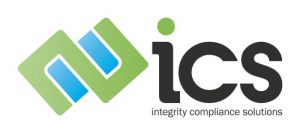
Different countries have different Food Fraud regulations and even different definitions. If you are exporting you need to know not only what the requirements are, but also the meaning of the term in that region. Food fraud is economically motivated adulteration of food. It’s all about making money – not sabotage.
Food fraud is not HACCP which is the prevention of unintentional/accidental food safety adulteration i.e. science based, and food borne illness. It also not Food Defence or threats – the prevention of intentional ideologically motivated adulteration i.e. sabotage or bioterrorism.
Some legal definitions of food fraud from around the world include:
FSMA (USA):
- Intentional adulteration from acts intended to cause wide-scale harm to public health, including acts of terrorism targeting the food supply.
- Hazard may be intentionally introduced for purposes of economic gain.
UK:
- Food fraud is considered to encompass the deliberate and intentional substitution, addition, tampering or misrepresentation of food, food ingredients, or food packaging, or false or misleading statements made about a product for economic gain.
Australia:
- Gaining a financial advantage or causing a financial disadvantage through deception or dishonesty.
VACCP (Vulnerability Assessment Critical Control Point) is a method of risk assessing raw materials for the risk of food fraud occurrence. There are several methods that can be used – some require far more resources (staff knowledge, time and ability) that is available in the average food business. Some methods present you with a multi coloured spider-web that looks fabulous but does not give a clear result for ranking of the food fraud hazards. In addition to the regulations in the country of manufacture and sale, you also need to be aware of the requirements of the standards your company is audited against i.e. BRC, SQF or specific retailer/customer requirements. Some retailers specifically require a ranking of identified food fraud hazards.
All GFSI standards require some type of documented food fraud risk assessment and control plan requirements – but they do vary between the Standards. Some requirements are:
BRC Food Safety Global Std:
- 3.5.1.1 Documented risk assessment of each raw material that must consider substitution or fraud.
- 5.4.2 Documented assessment of the vulnerability of the raw material supply chain.
SQF Systems Elements Ed 8- Manufacturing:
- 2.4.4.5 Sites food fraud vulnerability assessment including the site’s susceptibility to raw material or ingredient substitution, mislabelling, dilution and counterfeiting … impacting food safety.
- 2.7.2.1 Food Fraud vulnerability assessment include the site’s susceptibility to product substitution, mislabelling, dilution, counterfeiting or stolen goods which effect food safety.
And the FSMA rulings (Federal US regulations): Mitigation Strategies to Protect Food Against Intentional Adulteration:
- A vulnerability assessment, to identify: Significant vulnerabilities and actionable process steps.
The VACCP (Vulnerability Assessment Critical Control Point) methodology developed by ICS is a simple but effective tool of risk ranking raw materials for potential food fraud occurrence. It uses the existing skills of the HACCP team and utilises a 3-variable matrix (Likelihood x Detectability x Profitability) with a resulting score between 1 (overall very low risk) – 125 (overall extremely high risk). This allows raw materials to be clearly ranked for risk. The result is a fully documented assessment against a specific raw material that is easily reviewed at least annually. ICS have used it to assess over 600 different raw materials with the resulting scores between 1 and 60.
ICS have public, virtual and online training courses (and technical support services) in Food Fraud awareness, Food Fraud requirements (Regulatory, GFSI and retailer standards) and VACCP Food Fraud assessment methods. http://integritycompliance.com.au/
Here is a presentation on a specific food fraud case presented by Clare Winkel at the 2018 SQF conference : http://integritycompliance.com.au/when-it-doesnt-smell-look-or-feel-right-food-fraud-detection-monitoring-and-mitigation-in-the-raw-material-supply-chain-marriot-marquis-atlanta-ga-october-23-25-2018/
